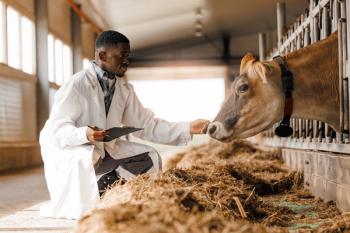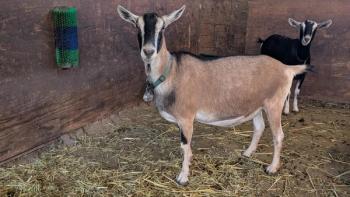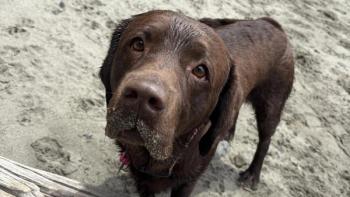
Gene Mutation in Dogs Linked to Rare Human Syndrome
Investigators have pinpointed a genetic mutation in canine breeds with kinked tails that is similar to a mutation found in humans with Robinow syndrome.
Bulldogs, French bulldogs, and Boston terriers are well known for their small stature, short face, wideset eyes, and truncated, kinked “screwtail.” In fact, it is these physical traits that make the breeds so popular.
According to Danika Bannasch, DVM, PhD, a professor at the University of California, Davis (UC Davis) School of Veterinary Medicine, this type of tail is seen in breeds that lack the vertebrae that make up the tailbone. And now, research from UC Davis has pinpointed the genetic basis for the appearance of these unique tails—and it is linked to a rare inherited human syndrome.
Pinpointing the Mutation
For their study, the investigators sequenced the whole genome of 100 privately owned dogs, 10 of which were screwtail breeds, to pinpoint genetic differences associated with these breeds. According to their analysis, from more than 12 million individual genetic differences the investigators were able to identify 1 mutation in a gene called DISHEVELLED 2 or DVL2. This variant was found in 100% of the bulldogs and French bulldogs sampled, and was very common in Boston terriers.
Mutations in the related DVL1 and DVL3 genes in humans are known to cause Robinow syndrome, a rare disorder characterized by anatomic changes that include a short, wide “babyface,” short limbs, and spinal deformities. As outlined in the study in
The One Health Connection
By characterizing the screwtail DVL2 protein product, UC Davis grad student Sara Konopelski pinpointed a key biochemical step in the WNT pathway that is disrupted by the mutation. This finding suggests that a common molecular defect is responsible for the distinct appearances of both Robinow patients and screwtail dog breeds. This is significant from a One Health perspective because understanding the mutation in dogs may provide medical researchers with more insight into Robinow syndrome. Only a few hundred cases of the syndrome have been documented in humans over the past 5 decades.
“It’s a very rare human disease but very common in dogs, so that could be a model for the human syndrome,” Dr. Bannasch added.
Newsletter
From exam room tips to practice management insights, get trusted veterinary news delivered straight to your inbox—subscribe to dvm360.






